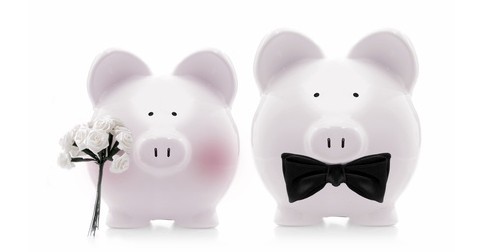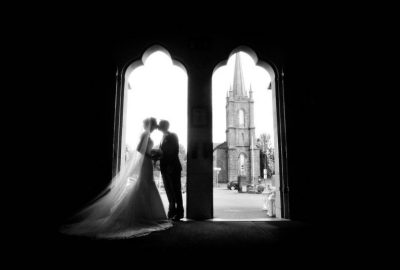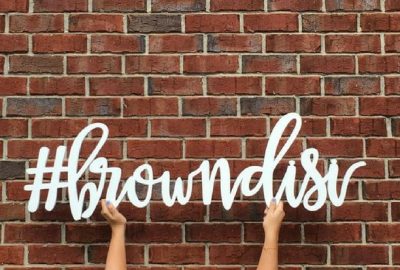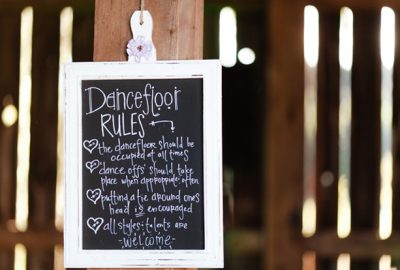
Keeping your wedding costs under control
Creating a budget for your wedding can be a daunting task at first, but once you get started, it’s not all that bad. To ensure smooth wedding planning, set a budget from the start and keep track of those costs. You probably don’t want to skimp on quality though, cutting corners might end up costing you more in the long run!
We’ve asked Accountant and Business Advisor Sinead Doherty (and previous Mrs2Be bride!) to write an article about how to create a wedding budget.
Budgeting for a wedding is a question of compromise and prioritisation. While a wedding is a wonderful dream day, nobody wants it to leave them financially crippled for the first few years of their married life. Therefore the first step is to plan how much cash you’re willing and able to spend, where it’s going to come from, and what you’re going to spend it on.
Preparing a Provisional Budget
Before you can prepare any kind of meaningful budget, you need to sit down and have a think about the type of wedding that you ideally want to have. You should take a look on the web, contact venues, talk to friends anything to help you decide on the vision for your big day and to give you a rough indication of what the different aspects of that vision may cost. Once you have gathered this information, you can prepare a first very provisional budget. This provisional budget will probably, more often than not, give you a shock when it is all added together, because lets face it, we all tend to start with grand designs for our big day! So a little trimming of the fat is inevitably required.
Deciding on your Priorities
Once you have prepared a provisional budget, you need to decide on your priorities. For example, is a large number of guests a big priority? How extravagant do you want your dress to be? Every couple will have different priorities. Deciding which things are an absolute must and which things you can live without if you have to, is one of the most important aspects of forming your budget. I would suggest keeping two separate lists, the first being your main budget and the second being your luxuries’ list, that is, all the things that you have decided that you could live without, but still hope to be able to sneak back onto the main budget at some stage!
How much can you Afford to Spend?
Knowing how much you have to spend is also very important in forming a meaningful budget! So as well as deciding what your priorities are, thought also needs to be given to where the funds will come from. Will it all be paid from your own savings? Will you need a bank or credit union loan? Will your family be providing financial assistance?
If you plan on taking out a loan, make sure you speak to your bank or credit union in advance of putting down deposits with suppliers. It is important to be sure that you find what amount of a loan you will qualify for and it is also important to be aware that in the current economic climate, obtaining a personal loan, even for a small amount, is much harder than it used to be.
When thinking about taking out a loan, consider:
- Can you afford the repayments?
- How long do you want to pay back the loan?
- Are you getting the lowest possible interest rate on the loan? You should shop around for the most competitive loans in exactly the same way as you shop around for any other wedding purchase.
If you are planning on using your credit card and don’t expect to be able to clear the balance in the full when it is due, make sure that you take advantage of the increasing number of credit cards on the market which offer a 0% introductory rate for the first 6 to 9 months. But also be aware of what the interest rate will revert to after the introductory period. If it is not competitive, switch credit cards at the end of the introductory period. Many credit cards also now offer 0% on balance transfers from existing credit cards, so by taking advantage of this, it might be possible to obtain a 0% interest loan for a year or two. But always remember that credit cards are one of the most expensive forms of financing, so do not overstretch yourself and be sure that you can repay in full by the end of the 0% interest period. Figuring out both the maximum amount of money available for the wedding and deciding on your priorities will give a meaningful shape to your budget.
Budgeting Tools
I would suggest that the easiest way to keep track of a budget is to use an excel spreadsheet. If you haven’t used excel before, there’s no need to break out into sweats! It’s actually very straightforward and a very useful little tool to get the hang of. I know I’m an accountant and use excel every day, so it’s easy for me to say, but trust me on this one! The great thing about using excel rather than a Word document or a manual method, are features such as all figures in the spreadsheet updating themselves when you change one figure. For example, your total spend figures will update when you add in an extra cost. Excel will also automatically calculate how much you are under or over spending as you input your figures. As you confirm bookings and purchases, you can enter the actual figures next to your budget figures. This will help you keep track of how much you are under or over spending.
Remember, there is a handy wedding budget template available on Mrs2Be.
Final Step
The final step is to negotiate the best possible prices for each item on your budget. Ask for extra freebies! If you’re not used to doing this, give it a go, you’ll learn to love it! You can also bet that everyone else is asking for discounts and extras and if you don’t do the same you’ll be the only one paying over the odds. Suppliers expect to be haggled with so just go for it! And if you need motivation, just keep your luxuries’ list nearby. Every few euro you save here and there could all add up to allow you to purchase one or two of the little luxuries that you would really love for your big day. Again, be careful about skimping on quality.
Sinéad Doherty
Qualified ACCA Accountant and a Qualified QFA Financial Advisor
Managing Partner and Business Development Manager for Fenero Tax & Accounting and Fenero Financial Services
Website: http://www.fenero.ie
RESOURCES:


